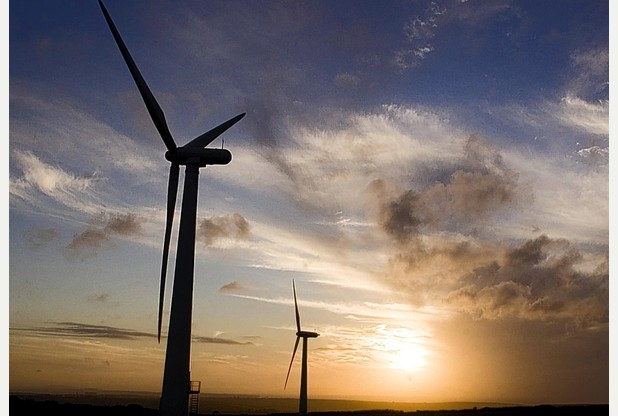What's the cost of a green machine anyway?
South Wales Evening Post - 1 April 2014
I was a bit taken aback last week when the energy regulator Ofgem announced they would be asking the Competition and Markets Authority (CMA) to look at whether there was effective competition within the UK energy market.
Like many people, I'd always thought that keeping an eye on the Big Six was Ofgem's role — that is, when they weren't nodding through above-inflation price increases.
I've read that the complexities of energy charging stem from the ad-hoc way that supply systems have evolved in the past 20 years. Added to that is the split between green energy and fossil fuel consumption.
The Department of Energy and Climate Change projects a steady increase in the price of fossil fuels over the next 20 years.
Energy analysts, however, reckon that the figures are inflated to appear on a par with unit costs guaranteed to firms commissioned to build a new generation of nuclear reactors.
It's no wonder we consumers have come to place little trust in the energy industry or the ability of governments to exercise a decent system of price and regulatory controls.
Things are not looking good for the future. There have been warnings that spare electricity production capacity could fall to two per cent by next year.
This week, a major report by the UN has warned that the impacts of global warming are likely to be "severe, pervasive and irreversible".

Ofgem: seen as regulators of ill-repute
This week, a major report by the UN has warned that the impacts of global warming are likely to be "severe, pervasive and irreversible".
None of that, though, has made us wildly enthusiastic about embracing renewable energy as an alternative.
Be it wind, tidal or solar power, there is always controversy, with plenty of argument over environmental impact versus environmental benefit.
Research into social attitudes towards renewable energy suggests few of us approach the subject without a set of preconceived views.

renewable energy or environmental blight?
This is despite having only a fuzzy idea about the technology involved.
Basically, the findings state that as much as we like to think of ourselves as a green and responsible society, the truth is all we really want is a reliable supply of cheap energy, and preferably with the methods of production and delivery kept neatly away out of sight.
I'm presently doing some community engagement work for a firm that wants to build a waste to energy plant (what you and I would call an incinerator) in another part of the UK. It has the ability to provide electricity to more than 2,500 homes, plus a sizeable district heating system to the existing community.
I have to admit to getting slightly lost when the company experts talk about entrained fine ash and electrostatic precipitators.
However, I know that the technology is widely used in several European countries where the green movement has a significant political influence.
Yet try telling that to the good people living in communities near the proposed facility. More than 80 per cent of those interviewed were adamant that the only relevant factor was that a facility burning wood chippings half a mile away would lower house prices.
Of course, it is basically the prospect of government subsidy that made the project commercially attractive in the first place.
Now the UK government is looking at select committee reports over whether it is practical to eliminate "harmful" subsidies, as defined by the UN, for nuclear, fossil fuel and renewable energy production.
Here in South Wales the circumstances are that an energy policy and an industry policy are crucially interlinked. The manufacturing jobs we want to retain and grow in the region are reliant on firms who are massive energy consumers.
All this presents serious challenges, and especially for politicians with constituents who instinctively place greater emphasis on cheaper energy costs than saving the planet.
It's an uncertain situation. But one thing we can be clear about is that the scale and location of new power facilities is not going to be decided at local or even regional level.
I suppose that whether or not you agree with that approach largely depends on how keen you are to keep the lights on.